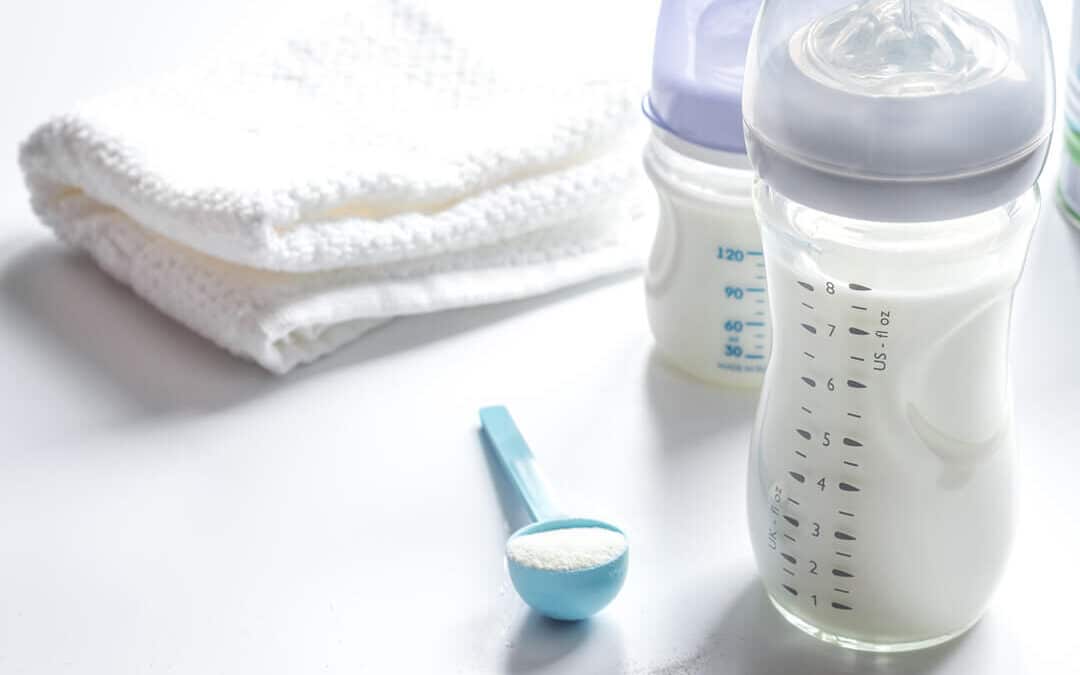When a child is born premature, parents have to worry about serious health risks to the infant. The baby is born with very low birth weight, and their heart rate and breathing are not normal. The infant may have a congenital heart defect, which means the heart is not fully developed. The baby may also have an abnormally small head, which can cause problems with the brain, as well as other health problems, such as anemia or dehydration. These health problems can be life-threatening for the infant.
Besides these serious health risks, there is another deadly complication, Necrotizing Enterocolitis (NEC), that could occur in association with formula feeding.
What is NEC?
Necrotizing enterocolitis (NEC) is a type of acute intestinal inflammation that results in a compromised intestinal wall and possible tissue death. Premature babies are especially vulnerable to NEC, as immature intestinal tissues are more susceptible to infection. NEC can begin in any part of the digestive tract, but it is most often found in the large intestine.
NEC occurs when toxins released by the bacteria within the intestine cause the tissues of the digestive tract to die. This can cause a wide range of symptoms, including abdominal pain, constipation, diarrhea, blood in the stool or vomit, fever, and lethargy. If the condition does not get properly treated, NEC can cause the intestines to rupture, causing leakage of bacteria and other substances into the abdomen or bloodstream, leading to a life-threatening septic infection.
To treat an infant with NEC, doctors will temporarily halt all regular feedings and instead give the infant nutrients intravenously and administer antibiotics. They may also insert a tube through the nose into the stomach to allow for the suctioning of any fluids that may build up. When these treatments do not work, the infant may need surgery to remove parts of the damaged intestines, this especially happens in the case of a ruptured intestine. About 20 to 30% of infants with NEC do not survive and about half of those who do will suffer from long-term complications such as
- Poor growth/malnutrition
- Parenteral nutrition-associated cholestasis and liver dysfunction
- Metabolic bone disease
- Short bowel syndrome
- Neurocognitive impairment
Studies Show Baby Formula Can Cause NEC in Premature Babies
Many studies in the last 30 years have found that a significant number of babies developed NEC after being fed a formula containing cow’s milk. In 1990, a study found that premature infants who were fed formulas derived from cow’s milk versus those only fed human breastmilk had 6 to 10 times increased chance of developing NEC. Even those premature infants who only received cow’s milk-based formula as a supplement to breastmilk were three times more likely to develop the disease.
Almost a decade later, the Journal of Pediatrics released a study that reached similar conclusions as the 1990 study. The study found that infants fed with human breast milk fortifiers were 90% less likely to develop NEC compared to those fed with traditional formula. A 2011 study by Johns Hopkins Medical Institution found that premature infants weighing less than 3.3 pounds who were fed human donor milk were far less likely to develop NEC than those infants fed infant formula derived from cow’s milk. That same year the U.S. Surgeon General issued a Call to Action in support of breastfeeding and warned that “For vulnerable premature infants, formula feeding is associated with higher rates of necrotizing enterocolitis (NEC).”
Research conducted by other organizations in 2013, 2014 2016, 2017, 2019, and 2020 all reached similar conclusions about the harmful effects of cow’s milk-based infant formula on premature infants.
Lawsuit Against Baby Formula Manufacturers Causing NEC
Despite all of this medical research, manufacturers of cow’s milk infant formula, namely Enfamil and Similac infant formula, have refused to alter their production and selling of their product. They have also failed to adequately warn parents and medical professionals about the risks of NEC posed by feeding their cow’s milk-based formulas to premature infants.
A study published by the British Medical Journal in late 2021 suggests even worse negligent practices by the manufacturers of Similac and Enfamil. The study claims the companies also funded biased and unreliable clinical product trials which showed a “universal lack of transparency” and seemed to downplay their cow’s milk-based formula’s role in causing NEC in premature infants.
Because of this negligence, the manufacturers of Similac and Enfamil formulas could be held accountable for injuries caused to premature infants by the use of their products. Parents who believe their child was harmed by being fed these companies’ cow’s milk-based infant formulas can file an action for compensation. They could receive compensation for the following:
- Medical costs: money for past and present medical bills associated with the infant having necrotizing enterocolitis (NEC).
- Pain and suffering: compensation for the physical pain and discomfort the infant suffered as well as the emotional pain parents may have endured from watching their child suffer.
- Lost wages: payment to a parent or other family members for the wages they lost because of missing work to take care of their baby.
- Wrongful death damages: families can receive funds meant to compensate for the loss of their precious little one.
Getting Help with Your NEC Baby Formula Lawsuit
If the use of Similac or Enfamil has harmed your child, you may be entitled to compensation. You may want to hire a personal injury lawyer to help with your case. A personal injury lawyer can help you navigate the complexities of the legal system and protect your rights..
Brock & Stout’s personal injury lawyers have over 25 years of experience helping clients receive compensation from manufacturers of harmful products. Contact us for a free consultation to see if we can help you and your family get the help you need.

